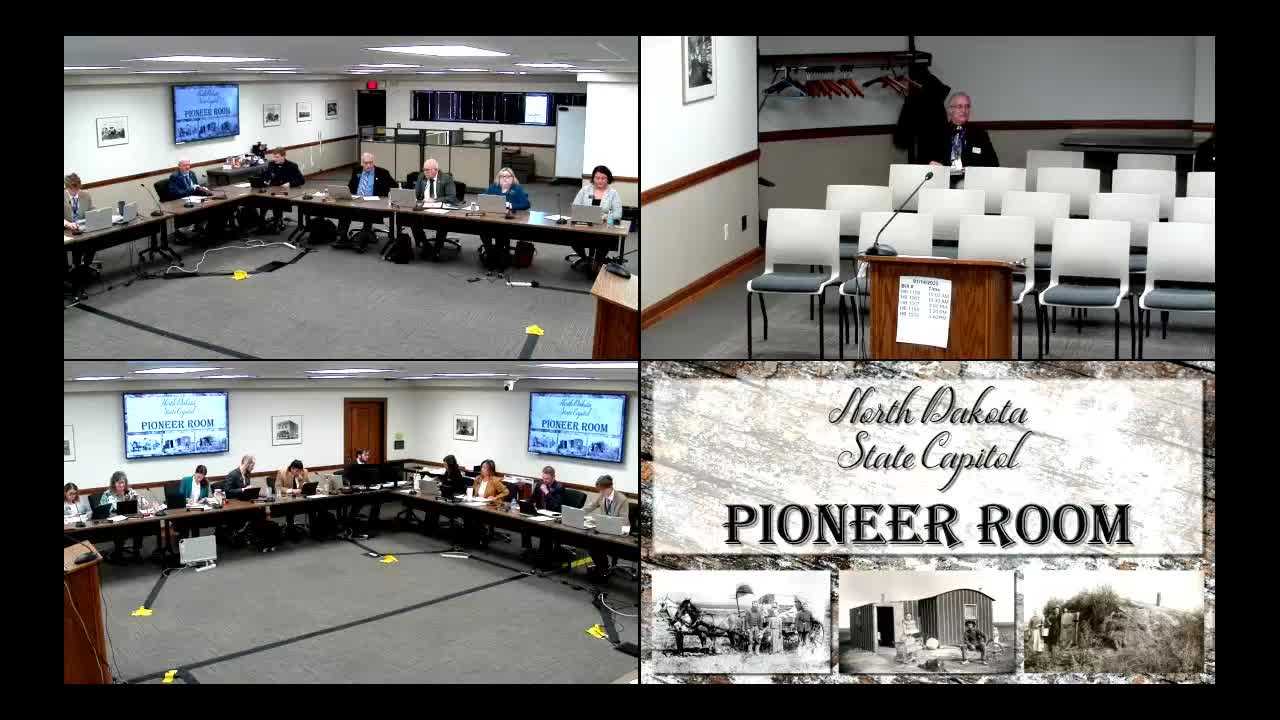Committee hears bill to extend Medicaid to lawfully present children, raise waiver age to 21
Get AI-powered insights, summaries, and transcripts
Subscribe
Summary
The House Human Services Committee opened a hearing on House Bill 1067, a department‑requested bill to allow Medicaid coverage for lawfully present children without regard to length of residency and to extend certain children's waivers to age 21.
The House Human Services Committee opened a hearing on House Bill 1067, a department‑requested bill that would allow Medicaid coverage for children who are lawfully present in the United States without consideration of how long they or their parents have resided in the country, and would raise the age limit for participation in the Medicaid children’s autism and medically fragile waivers to 21.
"We estimate that up to an additional 180 children per year may receive Medicaid coverage if this bill passes," said Krista Fremming, assistant director of the medical services division at the Department of Health and Human Services. Fremming said the provision mirrors a 2023 change (Senate Bill 2181) that removed the five‑year waiting period for pregnant women and extends that same approach to children.
Fremming told the committee the department included a fiscal estimate for section 1: about $356,000 in state general funds and about $604,000 in federal matching funds for the 2025–27 biennium. She said the department is recommending an amendment to make section 1 effective April 1, 2026 to allow additional time for IT system changes; if adopted, the fiscal estimate would be adjusted.
On waiver changes, Fremming said raising the age to under 21 would allow existing waiver participants to remain in autism and medically fragile waivers through a more gradual transition to adulthood. "If this change is not made, 23 children will age out of these waivers in the coming biennium," she said. She noted there are a fixed number of waiver slots and that the waivers are currently full, which could affect access for younger children if older participants retain slots.
Fremming also described scenarios in which the state has borne general fund costs when lawfully present children did not qualify for Medicaid because of the five‑year/40‑quarter rule — for example, a child in custody whose care required inpatient or residential services. Fremming cited a monthly cost of about $19,000 for psychiatric residential treatment as an example of expensive care that could otherwise be matched with federal funds.
Advocates spoke in support. Roxanne Romanik read testimony from Deneen Feist, director of Family Voices of North Dakota, which requested the committee consider an amendment to exclude Social Security survivor/retirement benefits and child support from calculations of child income for Medicaid eligibility. Romanik said Family Voices had consulted a national partner (the Catalyst Center at Boston University) and could not find states that treat those sources as child income in the same way North Dakota currently does; the group asked the committee to work with the department and counsel on language to protect families from sudden increases in recipient liability when household circumstances change.
Committee members asked for clarifications on terminology ("lawfully present" versus "legally present"), eligibility‑determination processes (use of federal verification systems), the effect of full waiver slots on younger applicants, and the amendment changing the effective date. Fremming answered that the department and human service zones use federal data sources to verify immigration status and that the two terms are synonymous in the bill language.
The committee received no testimony in opposition, closed the hearing on HB1067 after questions, and took no immediate action. Chairman Ruby noted the committee will schedule bill work later in the week and the following week.
